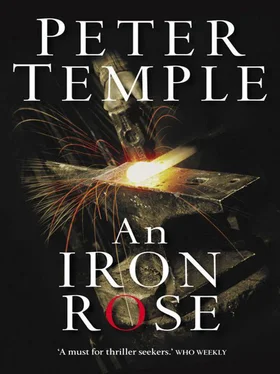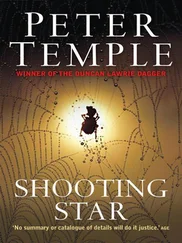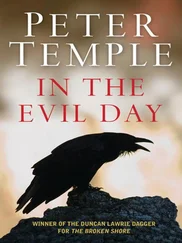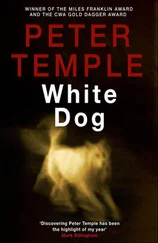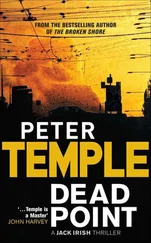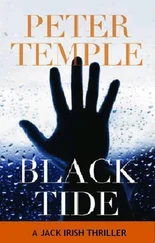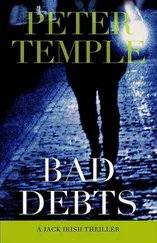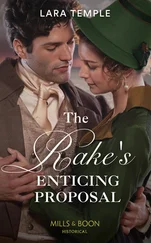Peter Temple - An Iron Rose
Здесь есть возможность читать онлайн «Peter Temple - An Iron Rose» весь текст электронной книги совершенно бесплатно (целиком полную версию без сокращений). В некоторых случаях можно слушать аудио, скачать через торрент в формате fb2 и присутствует краткое содержание. Жанр: Триллер, на английском языке. Описание произведения, (предисловие) а так же отзывы посетителей доступны на портале библиотеки ЛибКат.
- Название:An Iron Rose
- Автор:
- Жанр:
- Год:неизвестен
- ISBN:нет данных
- Рейтинг книги:3 / 5. Голосов: 1
-
Избранное:Добавить в избранное
- Отзывы:
-
Ваша оценка:
- 60
- 1
- 2
- 3
- 4
- 5
An Iron Rose: краткое содержание, описание и аннотация
Предлагаем к чтению аннотацию, описание, краткое содержание или предисловие (зависит от того, что написал сам автор книги «An Iron Rose»). Если вы не нашли необходимую информацию о книге — напишите в комментариях, мы постараемся отыскать её.
An Iron Rose — читать онлайн бесплатно полную книгу (весь текст) целиком
Ниже представлен текст книги, разбитый по страницам. Система сохранения места последней прочитанной страницы, позволяет с удобством читать онлайн бесплатно книгу «An Iron Rose», без необходимости каждый раз заново искать на чём Вы остановились. Поставьте закладку, и сможете в любой момент перейти на страницу, на которой закончили чтение.
Интервал:
Закладка:
Marcia Carrier nodded. ‘Have you noticed,’ she said, ‘that evil people have a kind of force about them? A kind of independence? It’s a very powerful thing to have. It’s a stillness, an absence of doubt, an indifference to the world. It draws people to them. The moral vacuum sucks people in. The weak go to the strong. We see girls like that here. Some of them come on like victims, like wounded creatures. But sooner or later the other side shows through. The side that’s the predator, the side that inflicts wounds. The evil side.’
She shook her head, quick self-chastising movement. ‘But that’s all too serious,’ she said. ‘We do what we can for the girls. They can study if they want to. Some do. For others, it’s too late. For now anyway. For them, we have a range of programs. Self-esteem. Life skills. Job skills. That sort of thing.’
That was the end of talking about Kinross Hall. She moved the conversation over to the possibility of spring ever coming. We talked about coffee-making, her ignorance of football, the effects of sun deprivation. It was an easy exchange. When I got up to go, she said, ‘This is going to nag at me. I’ll have another look at the records, see if there’s anything I didn’t spot that might have worried Mr Lowey. What’s your phone number?’
At the door, we shook hands. She had a nice, dry grip and she held it for a second.
‘I’m pleased to have met a blacksmith, Mr Faraday,’ she said.
‘Mac.’
‘Marcia.’
The security man had the gate open when I rounded the corner. He gave me a little wave.
I went home, lit the Ned Kelly in the forge and got back to work on the knives. I had made my first knife for George Tan, a chef friend of Vinnie the publican. He’d lost the index finger on his chopping hand to a boat winch. When he got back to work after two months off, he found his knives unbalanced in his hand. George showed me the problem in the pub one Monday night, and I drew a knife shape that might compensate for the missing finger. It took four or five versions to get the distribution of weight right. George was ecstatic. He rang me to say he wanted a full set. Another chef in his kitchen, a ten-fingered one, tried the knives and ordered three. He showed them to a chef in Sydney, who ordered a full set. I now had orders for about thirty knives.
Filing and fitting, stove gradually warming the room, I thought about my visit to Kinross Hall.
I couldn’t believe Ned had gone to see Marcia Carrier about work. Ned never asked anyone for work. And leaving aside Ned’s nature, he had no need to drum up work. His diary showed an almost full workload of bookings for two or three months.
Marcia Carrier had not told me the real reason for Ned’s visit to Kinross Hall the day before he died. Why? I kept turning my meeting with her over in my mind. Then I went to the office and rang Detective Sergeant Michael Shea. He was out. They would pass on a message. I left my number. I was sorting out Allie’s appointments when the phone rang.
‘Shea.’
I said, ‘There’s something. Ned Lowey complained to the cops about Kinross Hall in late 1985. November. Can you check that?’
Silence. He cleared his throat. ‘November ’85? Why the fuck would I want to check that?’
‘You might find out something.’
There was a long silence. I could hear traffic noises. Then he said, ‘I’m the policeman.’
‘Trying to help,’ I said. ‘Don’t want that, fine.’
Silence again. Someone said something in the background. Probably skinhead Cotter. ‘Get back to you,’ Shea said.
In the half-awake dawn, rain hissing in the downpipes, I lay on my back and, for the first time in years, thought about the old life. When I’d come to my father’s house and the smithy to stay, I had schooled myself to shy away from thinking about my recent past until the people in it seemed unreal and unimportant, as if I’d created them or seen them in a film. In my mind, I called that the old life. I wanted a new life, a life among ordinary people, people like Ned and Stan Harrop and Flannery. Now Ned’s death had shaken everything loose and I didn’t try to fight the thoughts.
The old life. It had been my life for thirteen years. The old life. The Job. The endless, seamless job that had no clear beginning and was never finished. ‘Your job!’ Susan had screamed one night. ‘Don’t call it your fucking job! It’s not a job. It’s your fucking life! It’s your fucking personality! It’s you. It’s what you are. You don’t exist without it. There isn’t anything fucking else in your world, don’t you understand that?’
I did understand that. And then again I didn’t. Not that it made any difference. She left me anyway. I came home one day and she was on the pavement putting suitcases into her car. It was a sunny day in early spring and, from a full block away, I saw the gold of her hair catch the light. A flash, like sun on a helmet.
Another departure. My whole life seemed to be about departures. My father and I changing towns every year or two, the two of us packing everything into the truck, sometimes no-one to say goodbye to, driving away from some forlorn fibro house in the grey dawn. I used to put myself to sleep thinking about the towns, trying to picture the few friends I’d made. Wal in Cunnamulla who gave me a Joseph Rodgers pocketknife. Sleepy-eyed Gibbo in St George whose mother always wanted to feed me. Russell in Baradine whose dog had spotty pups. For many years, I had the feeling that it was vitally important to keep the memories of these and other people and places alive. To let them fade away would somehow be an act of betrayal, of disloyalty. Perhaps this was because I had no recollection of my mother, and I felt that this was somehow my fault, as if I had not cared enough about her, as if I had cast her off, thrown away her memory. Your mother. Other people’s mothers ask you about your mother. The fathers ask: ‘So what’s yer father do?’
Why did we keep moving? I never really understood. I asked my father once, one night in my first university vacation, watching him work in the smithy. He didn’t stop what he was doing. After a while, he said, ‘Never wanted to stop anywhere long after I lost your mum.’ There was a long silence, then he said, ‘Nothin’s forever, John. Enjoy what you can and don’t be scared to move along.’
Before I was in my teens, I could tell when we were going to move. My father became morose, pacing around at night, not fishing, not reading, saying things like: ‘Jesus, imagine endin up in a dump like this.’ Once that started, it was over. Mentally, he was already somewhere else. It only remained for me to tell the teacher and get my sealed envelope. And prepare myself for the fight.
That’s the thing I remember most clearly about the string of tiny towns that looked as if they’d been dumped on the site from the air. The fight in the first week. They trailed you after school like mongrels following a bitch on heat. Big boys, small boys, fat boys, thin boys, all aroused by the prospect of violence, strutting, jostling. You walked on, whole body tense, heart like a piston in your chest, feeling them getting closer, half hearing the taunts through the blood noise in your head. Then someone would try to trip you, usually a small one, over-excited, wide-eyed, flushed. Or a few would run past you, turn and block your path or dawdle along, finally stopping. That was the moment.
By the time I was twelve, I’d learned to short-circuit the process, stop, turn, issue the challenge, draw out some pale-eyed, mouth-breathing boy, spitty lips, hands too big for his wrists. You couldn’t win these fights. Some bigger boy always dragged you off if you got the upper hand. But what my father taught me was that you had to show the whole baying mob that you were a dangerous person, a person prepared to kick, bite, pull hair, tear ears, gouge eyes, squeeze testicles, anything. ‘Don’t worry about fair,’ he said. ‘Dangerous is what you want to be. Go mad. Nobody wants to fight a mad person. Nobody wants fingers stuck up his nose.’
Читать дальшеИнтервал:
Закладка:
Похожие книги на «An Iron Rose»
Представляем Вашему вниманию похожие книги на «An Iron Rose» списком для выбора. Мы отобрали схожую по названию и смыслу литературу в надежде предоставить читателям больше вариантов отыскать новые, интересные, ещё непрочитанные произведения.
Обсуждение, отзывы о книге «An Iron Rose» и просто собственные мнения читателей. Оставьте ваши комментарии, напишите, что Вы думаете о произведении, его смысле или главных героях. Укажите что конкретно понравилось, а что нет, и почему Вы так считаете.
